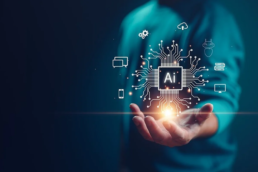In the ever-evolving landscape of software development, the demand for efficient and innovative code generation techniques has never been greater. Generative Artificial Intelligence (AI) has emerged as a transformative force, revolutionizing the way code is written, optimized, and maintained. This comprehensive overview explores the fascinating realm of Generative AI for code generation, shedding light on its significance, applications, and the future it promises to shape.
The Power of Generative AI
Generative AI leverages deep learning techniques, such as Recurrent Neural Networks (RNNs), Transformers, and GPT-3, to generate human-like text or code. This technology holds immense promise, providing developers with tools to automate routine tasks, increase productivity, and even explore creative coding possibilities.
Code Generation Applications
- Auto-completion and Suggestions: Generative AI assists developers by offering context-aware code suggestions, reducing errors, and enhancing development speed.
- Code Translation: It enables the translation of code from one programming language to another, broadening compatibility and facilitating cross-language development.
- Code Summarization: Generative AI can create concise summaries of lengthy code, making it more readable and accessible for developers.
- Bug Detection and Fixing: It aids in identifying and, in some cases, automatically fixing bugs, improving software quality.
- Domain-specific Code Generation: Generative AI can be trained in specific domains, such as web development, automating the creation of common components like forms, menus, or database queries.
Benefits of Generative AI in Code Generation
- Enhanced Productivity: Developers can work more efficiently by automating repetitive coding tasks, allowing them to focus on more creative and complex aspects of software development.
- Reduced Errors: AI can identify and fix common coding mistakes, leading to higher code quality and more reliable software.
- Faster Development: Code generation expedites the development process, reducing time-to-market for software products.
- Cross-platform Compatibility: AI can help in adapting code for various platforms and programming languages.
Challenges and Ethical Considerations
Despite its numerous advantages, Generative AI for code generation is not without challenges. Ethical concerns, like code plagiarism, may arise when AI generates code that too closely resembles existing solutions. Quality control and ensuring that AI-generated code meets industry standards remain important concerns.
The Future of Generative AI in Code Generation
As AI technology continues to advance, the future of code generation holds significant promise. Developers can expect more refined tools, improved accuracy, and AI that understands and adapts to coding styles and preferences. Additionally, Generative AI’s applications will likely extend to code refactoring, security analysis, and optimization.
Conclusion
Generative AI for code generation is a powerful and evolving field within the realm of software development. Its ability to automate routine tasks, enhance productivity, and improve code quality makes it an invaluable tool for developers. However, with great power comes great responsibility, and the ethical considerations associated with AI-generated code must not be underestimated. As this technology continues to mature, it promises to redefine the way software is created, fostering a new era of innovation and efficiency in the world of programming.




